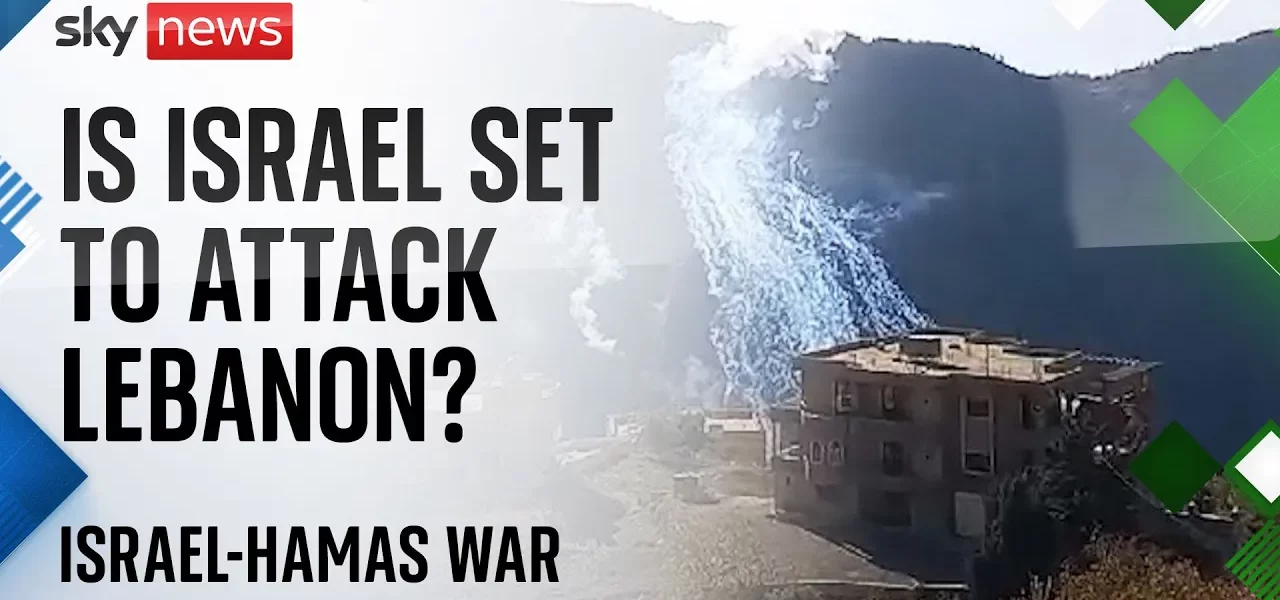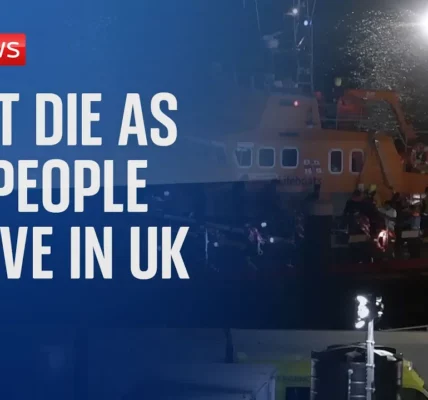Escalating Tensions on the Lebanese-Israeli Border: A Growing Crisis

The situation on the Lebanese-Israeli border has intensified dramatically in recent days, with both sides making threats of all-out war. This article delves into the recent conflicts, the humanitarian impact, and the international legal ramifications surrounding the use of military tactics such as white phosphorus.
Introduction
The Lebanese-Israeli border has become a focal point of escalating military tensions, marked by recent attacks from Hezbollah and swift military responses from Israel. This volatile situation is not solely a military issue; it has profound humanitarian implications, particularly for civilians caught in the crossfire. Reports of the use of controversial weapons such as white phosphorus have raised alarms internationally, prompting discussions about the legality of military actions under international law.
The Recent Escalation of Conflict
Over the past few days, the situation along the Lebanese-Israeli border has deteriorated significantly. With Hezbollah launching attacks, Israel has responded with a show of military force, indicating a readiness to escalate the conflict further.
Hezbollah’s Recent Attacks
Hezbollah’s actions appear designed to test Israel’s resolve. The group has launched several attacks, prompting urgent emergency meetings within the Israeli War Cabinet. In a display of military readiness, Israeli leaders have visited troops stationed in the northern regions, signaling a potential for increased military action.
Israel’s Response and Military Readiness
Israeli leaders have made it clear that they are prepared for a strong response. Statements from officials suggest that any attack on Israeli territory will not go unanswered. This mindset contributes to rising tensions, as both sides brace for potential conflict.
The Controversial Use of White Phosphorus
One of the most alarming aspects of the current conflict is the alleged use of white phosphorus by the Israeli military. This incendiary substance is highly controversial and its use in populated areas may violate international law.
Human Rights Watch Findings
Human Rights Watch has conducted investigations that indicate widespread use of white phosphorus by Israeli forces in Lebanon. Their reports focus on the period following the October 7th attacks, highlighting how this substance has been used to drive out civilians and cause extensive damage to land.
- White phosphorus is designed for creating smoke screens.
- Its use in civilian areas raises significant legal and ethical concerns.
- International law prohibits the use of incendiary weapons in populated regions.
The Israeli Defense Forces’ Position
In response to these claims, the Israeli Defense Forces (IDF) have denied using white phosphorus illegally. They assert that the shells in question are used solely for creating smoke screens and are compliant with international law.
The Humanitarian Impact of the Conflict
The ongoing conflict has led to a significant humanitarian crisis. Reports indicate that tens of thousands of people have been displaced due to the hostilities, with over 100,000 people in Lebanon alone forced from their homes.
Displacement and its Consequences
Many of those affected are farmers who have lost access to their land due to military actions, which have been characterized by a scorched earth policy. This has severe implications for the local economy and food security.
- Displacement of families from their homes.
- Destruction of agricultural land and livelihoods.
- Increased reliance on humanitarian aid.
Civilian Experiences and Community Resilience
Civilians living near the border are living in constant fear due to the unpredictability of the conflict. Many residents have expressed their concerns about the dangers posed by military operations, particularly the use of incendiary weapons.
Accounts from Affected Residents
Interviews with local residents reveal a growing sense of frustration and desperation. Many report experiencing breathing difficulties and anxiety due to the ongoing military activities.
- Residents are often reluctant to speak out due to fear of retribution.
- Reports of unpredictable attacks create an environment of constant fear.
International Responses and Warnings
The international community has been closely monitoring the situation, with several Western envoys issuing warnings about the potential for an all-out war between Lebanon and Israel. Diplomatic efforts are underway to de-escalate tensions, but the situation remains precarious.
Calls for Restraint
Diplomatic channels are crucial at this juncture, as both sides are urged to exercise restraint to avoid further escalation.
Conclusion
The tensions on the Lebanese-Israeli border reflect a complex interplay of military strategy, humanitarian crises, and international law. As both sides prepare for potential conflict, the humanitarian impact continues to grow, with civilians bearing the brunt of the violence. It is imperative for the international community to engage meaningfully to prevent further escalation and to address the humanitarian needs of those affected. We encourage readers to stay informed about this evolving situation and support initiatives aimed at peace and stability in the region.
“`




